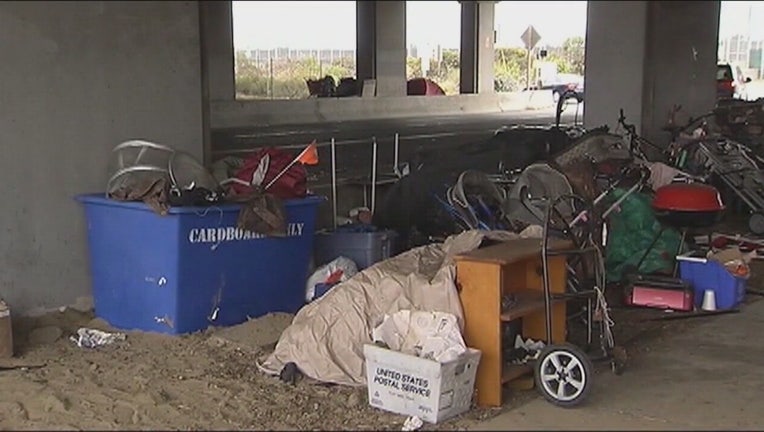Homeless people sue City of Los Angeles over claims of property confiscation

LOS ANGELES (FOX 11) - A group of homeless people and advocates filed a federal lawsuit Thursday alleging the city of Los Angeles' practice of removing the belongings of people living on the streets hampers their ability to improve their lives.
"Discarding people's belongings with arbitrary discretion and confusing rules harms their health and impairs their ability to work and find housing. The current practices and the law underlying them are unconstitutional,'' plaintiffs' attorney Catherine Sweetser said.
Rob Wilcox, a spokesman for the Los Angeles City Attorney's Office, said the office will review the lawsuit but had no immediate comment.
The city of Los Angeles routinely conducts cleanups of areas that are frequented and occupied by homeless people. The cleanups are aimed at reducing trash and preventing the spread of disease. The city has dedicated tens of millions of dollars to clean-up programs and outreach for homeless people that are expected to begin this fall.
The Legal Aid Foundation of Los Angeles, which also represents the homeless, issued a statement saying that while the city has made some changes in the way it response to homeless encampments, "there has been no movement by the Los Angeles City Council to address the constitutionality of (its laws).''
The group contends there is no requirement for the city or police to give notice to homeless people before they determine which items are to be discarded.
"The ordinance allows LAPD to arrest anyone who attempts to challenge LA Sanitation's decisions,'' according to the Legal Aid Foundation. "As a result, in the fourth quarter of 2018, the city teams tasked with enforcement visited more than 2,000 encampments and threw away more than 435 tons of debris, but sent less than 160 bags of belongings to storage.''
City Councilman Joe Buscaino took aim at the Legal Aid Foundation, blaming the organization for contributing to the city's homelessness issues.
"If the city attorney does not fight this case aggressively, Los Angeles will become a city of filth and disease,'' Buscaino said. "... Legal Aid Foundation claims months of negotiations with council members, but have not spoken to me once. Unlimited personal storage in public spaces creates a disease-ridden and inaccessible city, which is killing the very people that these greedy lawyers claim they are trying to help."
Property seized in the Skid Row area that is determined not to be contraband or criminal evidence is held for 90 days for people to recover.
CNS contributed to this report

